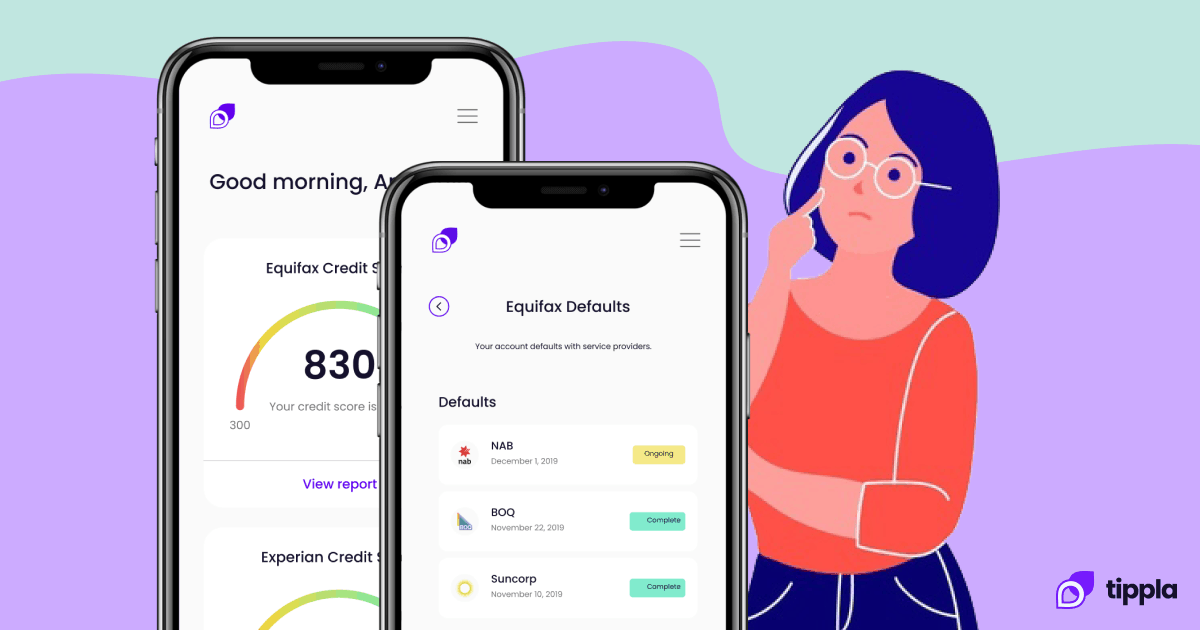Published in March 21, 2024
How to Build a Good Banking Relationship

Having a strong relationship with your bank can be a valuable asset. It can offer you access to better financial products and services, personalised advice, and potentially even help you secure a loan in the future.
This article will guide you through the steps of building a strong banking relationship in Australia, helping you get the most out of your financial institution.
Understanding the Australian Banking Landscape
Australia’s banking sector is primarily dominated by four major banks: Commonwealth Bank, Westpac, Australia & New Zealand Banking Group, and National Australia Bank. Apart from these major banks, there are around 97 banks in Australia, including foreign-owned subsidiary banks and regional banks. Additionally, there are approximately 36 credit unions and societies contributing to the banking landscape. Subsidiary and regional banks offer competitive rates and a focus on customer service but may have fewer branches compared to major banks.
The ASIC (Australian Securities and Investments Commission) regulates banks and financial institutions, ensuring compliance and consumer protection. The regulatory environment in Australia, overseen by ASIC, impacts banking relationships by setting standards for financial conduct, ensuring fair practices, and maintaining stability in the banking sector.
Starting on the Right Foot: Choosing the Right Bank for You
Choosing the right bank in Australia is an important first step towards managing your money effectively. Here are some factors to consider:
- Needs and Priorities: Consider your everyday banking needs like transaction accounts, savings options, internet banking, and access to ATMs to meet your specific requirements.
- Fees: Compare account fees, including monthly charges, transaction fees, and fees for using ATMs that aren’t part of your bank’s network.
- Customer Service: Look for a bank with a good reputation for customer service to ensure timely assistance and support.
- Values Alignment (Optional): Consider if the bank’s values align with yours. For example, Bank Australia prioritises social and environmental responsibility.
Opening Your Account
- Research: Once you’ve chosen a bank, research the specific requirements and documents needed to open your chosen account type
- Required Documents: Generally, you’ll need identification (passport or driver’s license), proof of residency (utility bill), and your tax file number.
- Initial Deposit: The initial deposit amount can vary depending on the bank and account type. Check the bank’s website or ask a customer service representative.
Maintaining a Positive Relationship
Building trust and maintaining a good relationship with your bank in Australia can be beneficial in the long run. Here’s how:
- Regular Communication: Keep your bank informed about major financial decisions or changes in your circumstances, such as starting a new job or expecting a significant income increase. This shows transparency and builds trust.
- Meeting Obligations: Timely repayments on loans and credit cards are crucial. A good payment history demonstrates reliability and strengthens your credit score.
- Utilising Bank Services: Going beyond basic transactions by using other services offered by your bank can be advantageous. This could include savings accounts, financial planning tools or insurance products. Remember to check if these align with your needs first, but utilising them can show your commitment to the bank.
By following these tips, you can cultivate a positive and long-lasting relationship with your bank, which may benefit you in the future when applying for loans or other banking products. It’s also worth noting that under the Banking Code of Australia, banks have a responsibility to treat customers fairly.
Leveraging Your Banking Relationship
A strong relationship with your bank can be beneficial in several ways. Here’s how:
- Negotiating Better Terms: Being a loyal customer can give you leverage to negotiate for a better interest rate on your home loan, lower fees on accounts, or improved service terms. Remember to do your research on competitor rates first. Highlight your good credit history and on-time repayments to strengthen your case.
- Accessing Additional Services: A good banking relationship can open doors to a wider range of financial products and services tailored to your needs. This could include investment options, financial planning advice or preferential rates on other loans.
Remember, building trust and maintaining a positive rapport with your bank can be advantageous in the long run.
Handling Disputes and Challenges
A bank’s complaint resolution process shows how much they value their customers. When a bank offers a straightforward and fair system for addressing issues, it shows a commitment to customer satisfaction and fosters trust. So if you have complaints with your bank, here are steps you can take to address it:
Effective Communication
- Clearly outline your complaint to your bank in writing or by phone. You can find contact details on your bank’s website:
- Be clear and concise about the issue and the desired outcome.
- Keep a record of all communication with your bank, including dates, names and reference numbers.
Seeking Assistance
If you’re unhappy with your bank’s response to your complaint, you can complain to the Australian Financial Complaints Authority (AFCA). AFCA is an independent service that investigates and resolves disputes between consumers and financial institutions.
Remember, it’s important to act promptly when addressing any banking issues.
The Role of Digital Banking
Digital banking is becoming increasingly popular in Australia, with many customers shifting to online platforms for their convenience. Digital platforms analyse your banking habits to offer targeted financial advice and promotions, which can make you feel like your bank understands your needs and wants to help you reach your goals.
Here’s a breakdown of its advantages and security aspects:
Embracing Technology
- Convenience and Efficiency: Manage your finances 24/7 from anywhere with an internet connection. You can make payments, transfer funds, and check account balances all through your phone or computer.
- Improved Functionality: Many banks offer budgeting tools, financial products and services readily accessible through online banking platforms.
Security Considerations
- Banks take security seriously: Australian banks are constantly working on improving online security measures to protect their customers from fraud.
Your Role in Staying Safe
- Be cautious of emails, texts or calls requesting your personal information or online banking credentials. Banks will never ask for this information via these channels.
- Use strong passwords and update them regularly.
- Be aware of the latest online scams and phishing attempts. The Australian Banking Association (ABA) is a great resource to stay informed.
By following these tips, you can embrace the convenience and efficiency of digital banking while keeping your finances secure.
Building Long-Term Relationships
Maintaining a positive relationship with your bank can be advantageous, but it’s also important to ensure your needs are being met.
Review and Adapt
- Regular reviews: Schedule periodic reviews (biannually or annually) to discuss your financial health and goals and needs with your bank. This allows you to explore new products or services that better suit your evolving circumstances.
- Competitiveness: Research and compare the interest rates and fees offered by other banks in the market. Knowing your options empowers you to negotiate better deals with your current bank.
Loyalty Benefits
A long-standing relationship can offer perks like better rates and personalised service. However, be aware of loyalty programs that may not necessarily align with your financial goals.
By proactively managing your banking relationship, you can secure the best possible service and value for your financial needs.
Special Considerations for Business Customers
There are advantages to having a dedicated business bank account beyond just separating personal and business finances. Here’s what business banks can offer:
Business Banking Services
- Tailored products and features: Business banks provide financial products and services designed to meet the specific needs of businesses, such as business loans, credit cards, transaction accounts with higher transaction limits and cash management solutions.
- Support and expertise: Many business banks have dedicated business banking teams who can provide financial advice and support specific to running a business.
Building a Network
- Relationship building: Building a strong relationship with your business banker can lead to valuable connections within the business community. Banks often host networking events or have partnerships with business organisations that can open doors to new opportunities.
Building a strong relationship with your bank in Australia can offer significant benefits. By following the tips above, you can establish a positive rapport that fosters trust and opens doors to better financial products, services, and potentially even loan approvals in the future. Remember, maintaining an open dialogue, fulfilling your financial obligations, and leveraging the services your bank offers can contribute to a mutually beneficial relationship. Don’t hesitate to research and compare options, but a strong relationship with your bank can be a valuable asset in your financial journey.
While we at Tippla will always do our best to provide you with the information you need to financially thrive, it’s important to note that we’re not debt counsellors, nor do we provide financial advice. Be sure to speak to your financial services professional before making any decisions.
Related articles


How to Prevent Mistakes on Your Credit Report
22/10/2021
Whilst mistakes on your credit report can be common,...

How to Reduce the Interest on Your Home Loan
29/07/2021
When you take out a loan, you’re not only...

Who Looks at Your Credit Report? A Quick Overview
18/10/2021
In Australia, you have three credit scores and credit...
Subscribe to our newsletter
Stay up to date with Tippla's financial blog